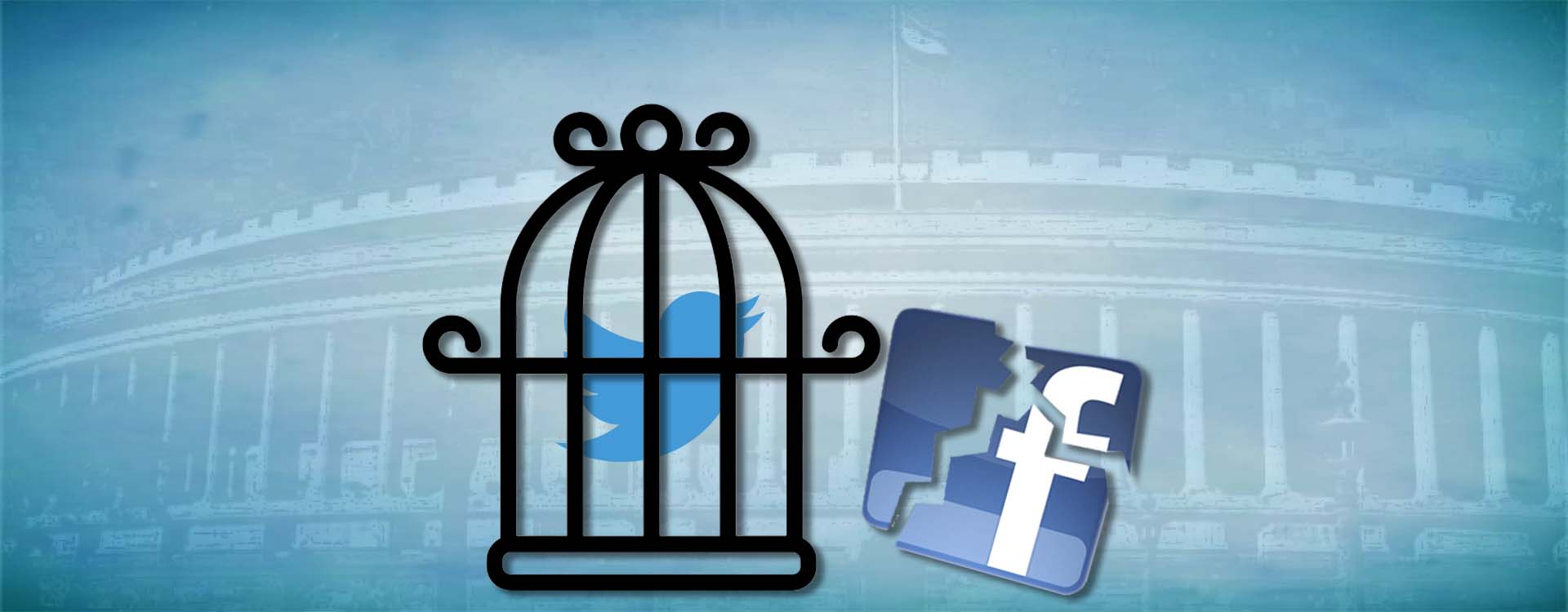It all began in the year starting 2000 – India’s internet exploded and everyone, including the big tech, came in to grab a piece of that pie. The global tech giants, including Facebook, WhatsApp, Twitter and Google, provided India with powerful platforms to transact, seek and express information and consume entertainment while accelerating their own user base.
This honeymoon period, however, now seems to be fading for these companies. Something seems to have changed in the past few years. There is a common global sentiment – “Put a leash on big tech (social media platforms)”.
Countries have been seeking stronger regulations of social media platforms, some even banning them. Similar has been the case in India. Recently, the Indian government ordered Twitter and Facebook to take down 100 posts critical of its coronavirus handling. This comes two months after similar orders were passed to take down accounts and posts with negative narrative on farmers protests. In February 2021, the ministry came out with new rules and regulations for social media, which were criticised for being “anti-national and unconstitutional, suppressing freedom of speech”.
This brings us to an important question – Do regulations undermine the idealism of an open market in a country? The answer is no. Regulation is good. But the agenda behind it needs to be clear and not created to suit a particular narrative.
Tightening the Noose: What the Government Says?
While passing the recent orders to take down the 100 posts, Communications, Electronics and Information Technology Minister Ravi Shankar Prasad said, “We respect social media a lot, it has empowered common people. Social media has a big role in the Digital India Programme. However, if social media are misused to spread fake news and violence, then action will be taken on the misuse of social media in India whether Twitter or else.”
“There is freedom of speech but Article 19A says that this is subject to reasonable restrictions,” he said, adding that all the social media platforms will have to adhere to the Constitution of India which allows criticism of the government and the Prime Minister, but spreading fake news will not be allowed.
While the government came under criticism to create “unreasonable barriers” for big tech firms, the government itself counter questioned these firms by saying that they apply different parameters for different countries.
“Different parameters can’t be allowed for different countries. It can’t be different for the Capitol Hill incident and some other parameters for the Red Fort incident.”
‘‘
How can something that is freely expressed verbally in public or on other media platforms be “unlawful” for social media platforms
“Tweets must continue to flow…”
Twitter chose to remain defiant and issued a public statement that the safety of its employees was a top priority, but that the “tweets must continue to flow”.
In a statement, Twitter had informed that in such cases, a legal request is usually reviewed under both Twitter rules and local laws. If the content violates Twitter’s Rules, it is removed. If it is found to be illegal in a particular jurisdiction, but not in violation of the Twitter Rules, the company withholds access to the content in India only and the account holders are notified.
In today’s scenario, for a market to be open and ideal, regulations play an important role. As mentioned earlier, regulations are good, given the agenda and reasons behind them are clear. In India’s case, this is somewhat distorted. It’s a grey area when it comes to operating laws for social media platforms.
How can something that is freely expressed verbally in public or on other media platforms be “unlawful” for social media platforms. Moreover, is it the law of India or is it the law of the country where the parent company is based? Or, is it the ‘law’ as framed by the company, regardless of the law(s) of either the parent or the host country.
These unexplained questions dilute the idealism of an open market. “Selective” censor of tweets /posts /accounts /hashtags further undermine the transparency and purpose of the regulations. This is more hurtful for a country like India which is known for its vibrant democracy.
We can Chain them, but can we do without them?
An ideal open market is a long gone concept as “businesses” are at stake now. Governments across the global, including the US and Australia, are looking to regulate big tech firms but are also open to doing deals with them.
In some cases, big social media platforms and apps losing access to the Indian market may not be as big of an impact for the company than for the Indian government which relies heavily on them for global interactions and pushes forward its own messages and narrative. It goes both ways. Ideal or non-ideal, the business will continue as usual for nations.




